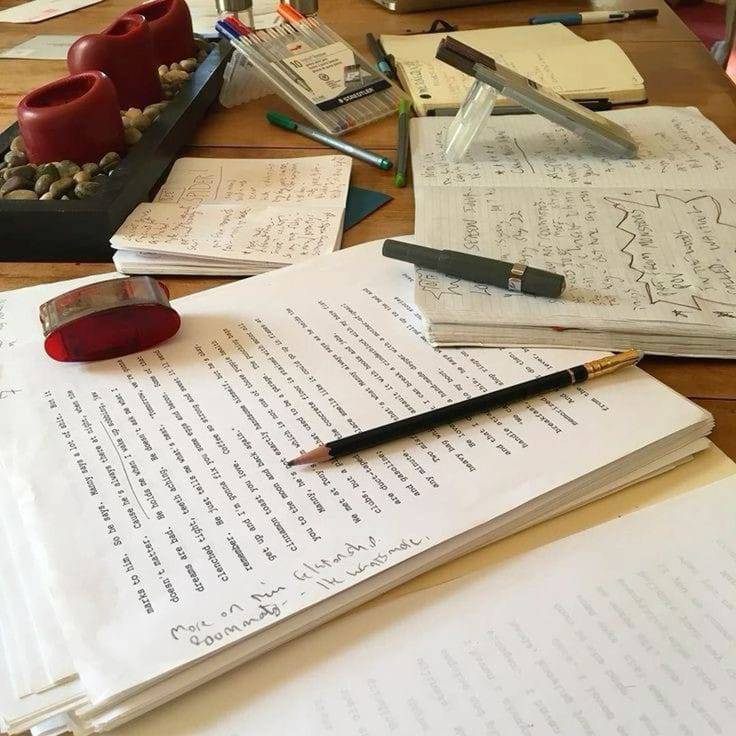It sounds like the legal version of a snooze button, but REALLY, once you understand this, it’ll feel like you’ve discovered the secret map of the publishing line. If you’re an aspiring author, chances are you’ve heard the word “copyright” tossed around a few times, and maybe, just maybe, you’ve wondered, “What does it actually mean for me?” Is it something you need to worry about? Does it mean someone is out there ready to steal your bookish masterpiece the moment it’s written? Should you be emailing your draft to yourself every night like some paranoid email hoarder? Spoiler: Not exactly.
So, What Exactly Is Copyright?
First, let’s start with the basics. Copyright is like the “parental control” of your creative work. It’s the legal right that automatically comes with your creation—whether that’s a novel, a short story, a poem, or even your next great idea for a memoir about your pet. The moment you put your thoughts into some kind of tangible form (like on paper, a computer file, or even an audio recording), copyright automatically kicks in and says, “Hey, this is yours now.”
But wait, it’s not that simple, right? Of course not. You’re a writer, not a lawyer (unless you are, in which case, why are you even reading this? You’ve got this down). While copyright is automatically yours the moment you fix your work in a tangible form, it’s not always so straightforward to prove it’s yours if things get a little dicey. So, that’s where things like registration and licensing come into play, which we’ll get to in a second. But for now, just know this: copyright is the superhero cape that covers your creative bottom.
Do You Have to Register Your Copyright?
Good news: You don’t have to file any paperwork or pay any fees to claim copyright on your work. The moment you get those words down, bam—you’re protected. No registration needed. But, and this is a big “but,” there’s a way to supercharge that protection.
While registration is not required, it’s highly recommended if you’re serious about protecting your work, especially if you think your next book will be the next big thing. In the U.S., for a mere $35 (or so), you can register your copyright with the Copyright Office. Why? Well, registration adds a few legal perks, like the ability to sue someone for statutory damages (aka, a higher payout if someone steals your work). Plus, it creates an official record that you created your work at a specific time, which could come in handy if there’s ever any dispute.
But just to reiterate—no panic. You are the rightful owner the moment you create your work.
Publishing: Money Should Be Coming Towards You, Not Away
Now, let’s address a little elephant in the room: publishing fees. Let’s make this crystal clear—real publishing does not ask you to pay anything to publish your book. If someone says, “Hey, give us Rs 10,000, and we’ll publish your novel,” run. Seriously. Run. It’s a scam, often known as a vanity press, and all it’s doing is taking advantage of your hopes and dreams.
In traditional publishing, money flows to the author, not away from them. If a publisher is interested in your book, they’re going to offer you a contract, pay you an advance (yes, you get paid before the book even hits shelves!), and handle all the messy logistics of editing, printing, and distribution. That’s the dream, right?
Now, for all you self-publishers out there, things are a bit different. You’re essentially taking on the role of a publisher yourself. You’re in charge of cover design, formatting, and getting that book up on the shelves (or, you know, the internet). While this can cost you some cash upfront (like for professional editing or cover design), it’s still your choice. The key is to make sure you’re not paying anyone just to “publish” your book. That’s a red flag.
Tough Love: Your First Book Is Going to Be Kinda Bad (But That’s Okay)
Here it comes, Your first book is probably not going to be as great as you think. And that’s okay! Seriously. Don’t cry, don’t panic, just keep writing.
Your first book is like that first pancake you make—it’s going to be a little burnt and weird-looking, but you’re learning. You’re going through the growing pains of becoming a better writer, and the best part is, you get to keep doing it! Your second book will be better. Your third book will be amazing. And before you know it, you’ll be sitting on a pile of your own literary success.
What Happens If Someone Steals Your Work?
Here’s the thing: probably not much. I know, that’s not what you were expecting, but let’s be honest: most people aren’t leering in the shadows, waiting to steal your manuscript. The reality is that unless you’re writing the next Harry Potter, the chances of your work getting stolen are slim to none. But let’s play the worst-case scenario for a second.
If someone does infringe on your copyright, you have legal options. Yes, it’s a hassle, but the legal system is on your side (mostly). To make life easier, consider registering your work. This allows you to easily prove that you were the original creator of your work. Without registration, it’s a bit murkier, but that doesn’t mean you don’t have rights. Copyright law is all about you being the one who gets to decide how your work is used.
Share, But Don’t Overshare
Here’s a handy tip: don’t post your whole novel on the internet unless you’re feeling really confident about your self-publishing future. Why? Well, if you publicly share your work, even on a forum like Reddit, that’s considered “publishing,” and it could hurt your chances of getting a publisher’s attention. Why would a publisher want to buy a book that’s already been seen by the public? They like to have first dibs on your work, and they’re not a fan of sloppy seconds.
It’s totally fine to share your work with a small, trusted group for feedback, but keep it under wraps in public spaces. That’s your secret sauce.
Licensing: How to Get Paid for Your Ideas
Here’s where it gets really fun. Now that you have the copyright to your work, you get to decide how it’s used. You can license your work, which means giving someone else the right to use it. For example:
- Maybe you want to license the rights for a movie to be made.
- Or perhaps you want to license your characters to appear on T-shirts.
- Or, if you’re feeling particularly generous, you could donate your rights to a charity. The choice is yours!
Once you’ve written something, you hold all the power. You can decide who uses it and how long they get to use it. You can sell those rights for big bucks, or keep them all to yourself. It’s a beautiful thing.
How to Prove You Created Your Work
But what if you’re worried someone’s going to question whether it’s your work? Well, that’s where good old-fashioned documentation comes in. Here are a few ways to make sure everyone knows you’re the creator:
- Email yourself the manuscript: It’s as simple as sending a copy to your email. This gives you a time-stamped record that says, “I wrote this on this date, and no one can take that away from me.”
- Register your copyright: If you’re looking for a more official backup, registering your copyright makes sure that your country has an official record of your work and when you created it.
- Publish with a reputable platform: If you’re self-publishing, just be sure to read the fine print. Some platforms may take a cut of your rights, so always make sure you know what you’re signing up for.
And there you have it—copyright, licensing, and all that good stuff boiled down into one guide. The bottom line is simple: you are the creator. You own it. So, relax. Keep writing. And remember: copyright is the shield that protects your book baby—now go ahead and make something really fun.


